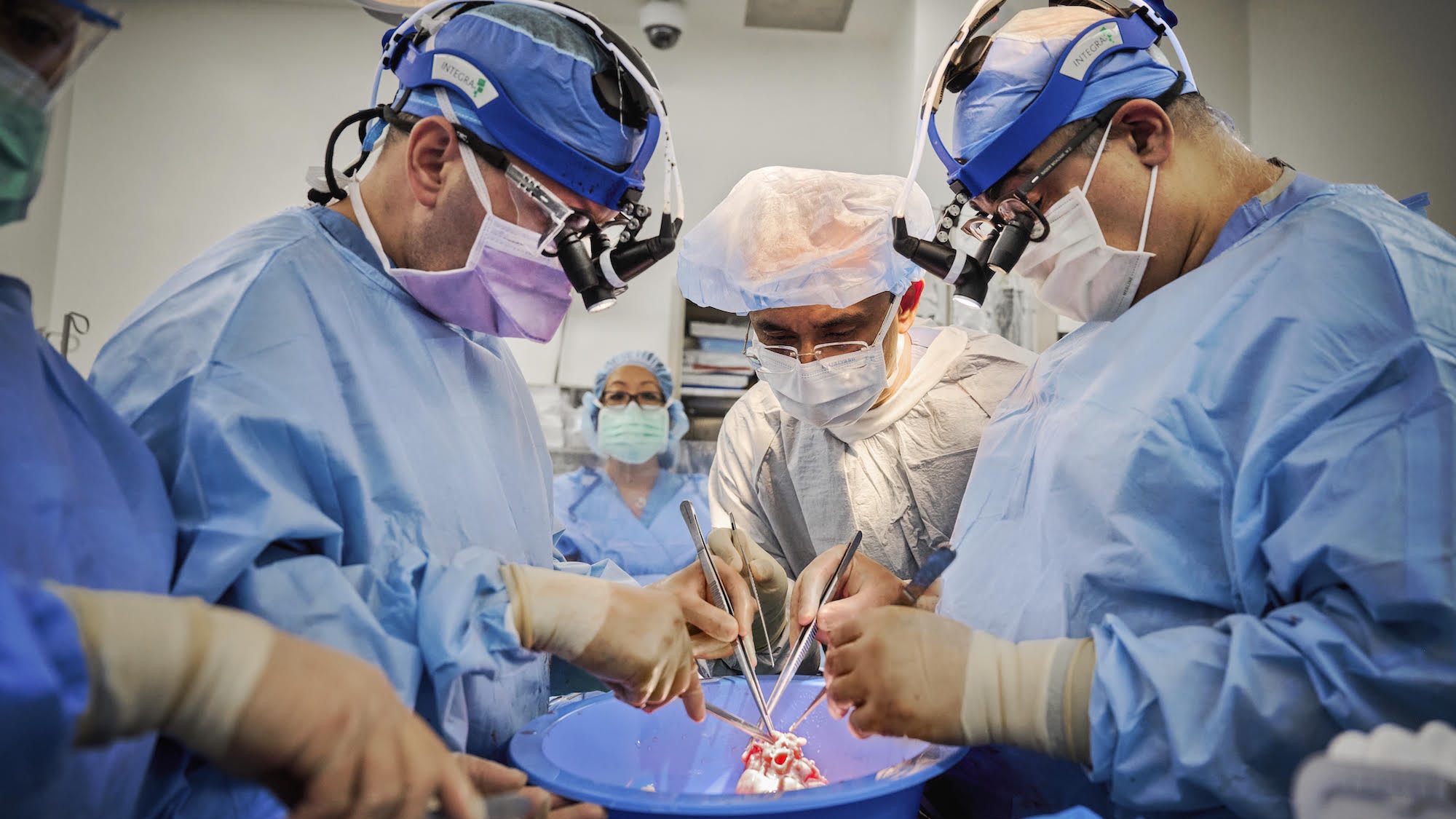2 pig hearts were successfully transplanted into brain-dead human patients
The procedure is now one step closer to FDA trials in living patients.

Doctors recently transplanted pig hearts into two deceased patients, raising hopes that animal transplants could one day be used to save human lives.
Led by Dr. Nader Moazami, a cardiac surgeon at NYU Langone Health medical center in New York City, the surgeries took place in June and July, according to the Associated Press. Earlier this year, a different group of doctors from the University of Maryland Medical Center transplanted a pig heart into another patient, who died two months after the operation, Live Science reported in March.
Related: 3 kids receive kidney transplants without need for immune-suppressing drugs
For the two recent surgeries, Moazami and his team transplanted the hearts of two genetically modified pigs into two recently deceased patients who were on ventilator support: 72-year-old Lawrence Kelly and 64-year-old Alva Capuano.
Both patients had long histories of heart disease, according to CNN. After the transplants, the patients received standard post-transplant medications. Physicians monitored the patients' heart functions for three days but detected no signs of early organ rejection. No additional mechanical support equipment was used after the surgeries, representatives from NYU Langone Health said in a statement.
Operating on the deceased as opposed to living patients "allowed more in-depth study of how well the recipients' bodies tolerated the pig hearts," Dr. Robert Montgomery, director of the NYU Langone Transplant Institute, told CNN. "We can do much more frequent monitoring and really sort of understand the biology and fill in all of the unknowns."
The first transplant of an animal organ into a person was a corneal transplant from a pig that took place in 1838, according to the National Library of Medicine. Since then, such efforts have been largely unsuccessful, as the human immune system typically attacks and rejects a transplanted animal organ as a foreign body. In recent years, researchers have circumvented this rejection by genetically modifying pigs to make their organs more closely resemble those of humans, the Associated Press reported. They "fool" the immune system by modulating the organ’s growth and reducing the chance that the recipient’s immune system would reject it.
Sign up for the Live Science daily newsletter now
Get the world’s most fascinating discoveries delivered straight to your inbox.
According to the United Network for Organ Sharing (UNOS), a non-profit that serves as the nation’s organ transplant system, there are more than 105,000 Americans on waiting lists for organ transplants. The Food and Drug Administration (FDA) is considering trials that would transplant genetically modified pig hearts or kidneys into volunteer patients, Nature reported. The success of the two recent surgeries will help researchers get one step closer to making this a reality, according to NYU Langone Health.
Originally published on Live Science.
Jennifer Nalewicki is former Live Science staff writer and Salt Lake City-based journalist whose work has been featured in The New York Times, Smithsonian Magazine, Scientific American, Popular Mechanics and more. She covers several science topics from planet Earth to paleontology and archaeology to health and culture. Prior to freelancing, Jennifer held an Editor role at Time Inc. Jennifer has a bachelor's degree in Journalism from The University of Texas at Austin.









